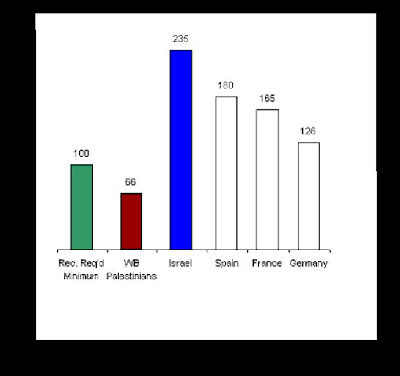

7فروردين :رفتاری شبيه دولتهای ايران و عربستان سعودی در قبال زنان صدای آلمان:
بخشی از زندگی روزمرهی مردم اورشليم و به ويژه زنان، تابع سليقه يهوديان افراطی است. آنها پيش از اين آواز خواندن زنان در جشنهای عمومی را ممنوع کرده بودند و اينک در آخرين تلاش، جداسازی زنان در اتوبوسها را دنبال ميکنند. آن دسته از زنان اورشليم که در محله مابين ديوار ندبه و شهر قديمی زندگی ميکنند، مجبورند از در عقب اتوبوس، سوار آن شوند و محل نشستن آنها نيز قسمت پشتی اتوبوس است. اين تصميم را يهوديان سنتی و افراطی محله گرفتهاند. اسراييليهای سکولار در قبال اين تصميم ارتدوکسها، تنها سر تکان ميدهند ولی وزير ترابري، خشم خود را از اين جداسازی جنسيتی بيان کرده است. خط مجانی برای تشويق مسافران اين خط جديد اتوبوس، توسط يک شرکت خصوصی راهاندازی شده است.
يهوديان متعصب، نشستن زنان و مردان غريبه در کنار هم در اتوبوس را مجاز نميدانند. پيش از اين ارتدوکسها تلاش کرده بودند خط دولتی شماره ۲ را نيز که از همين مسير ميگذرد، زنانه
� مردانه کنند اما اين تلاش با مقاومت مسئولان شبکه دولتی مواجه شده بود. تاکنون تنها اتوبوسهايی زنانه مردانه شدهاند که يا مورد استفاده توريستها نيستند يا مسيرشان مراکز گردشگری نيست.
روند زنانه مردانه شدن خط شماره ۲ اورشليم، خزنده و گام به گام بود. نخست اعلام شد که صندليهای عقبي، برای خانمها رزرو شدهاند و البته اين به آن معنا نبود که بانوان حتما روی آن صندليها مينشستند.
بارها شد که يهوديان افراطي، زنان را بخاطر خودداری از رفتن به بخش زنانه يا همنشينی با يک مرد در جلوی اتوبوس، مورد توهين قرار دادند.
مبتکران راهاندازی اين خط، برای تشويق مسافران از آنها کرايه نميگيرند.
شبيه ايران وعربستان سعودی اما اکثريت سکولار اسراييل، خشم ونگرانی خود از اين اقدامها را با بحثهای اينترنتی يا تلويزيونی بيان ميکند. آنها يهوديان ارتدوکس را متهم به رفتاری شبيه دولتهای ايران و عربستان سعودی در قبال زنان ميکنند. جنجال ناشی از جداسازی جنسيتی دراتوبوس، بحثهای مربوط به حدود مذهب در جامعه اسراييل را دامن زده است. مثلا کار کردن در روز شنبه، روز تعطيل هفتگی يهوديان، ممنوع است. در اين روز که يهوديان به آن "شبات" ميگويند، وسايل نقليه شهری نيز کار نميکنند. ممنوعيت هرگونه کار در روز شنبه، از جمله به مختل شدن کار بسياری هتلها ميانجامد. مذهبيهای افراطي، فروشگاههای نزديک ديوار ندبه را از روزنامههای سکولار حاوی تصاوير غيرمذهبي، خالی ميکنند. آنها به فروشگاههای مواد خوراکی سر ميزنند تا مبادا گوشت غيرکاشر(ذبح شرعی يهوديان)، به فروش برسانند. آنان حتی مانع از حضور يا هنرنمايی زنان در جشنهای فرهنگی ميشوند. ترک اورشليم بخاطر فشار مذهب اعمال اين محدوديتها به نام مذهب، سکولارهای اسراييل را آشفته کرده است. به نقل از نشريه "هاآرتص" ظرف ۵ سال گذشته، دستکم ۶۰ هزار اسراييلی که اکثرشان جوان بودهاند،
اورشليم را ترک گفتهاند.
بسياری خانوادهها به دليل فشارهای مذهبي، تل آويو را برای زندگی انتخاب کرده و از اورشليم رفتهاند. يکی ديگر از کوششهای يهوديان ارتدوکس، سرمايهگذاری برای مدارس خصوصی است تا آموزههای دينی را به کودکان ۶ تا ۱۴ ساله منتقل کنند. به نقل از "هاآرتص"، اين تلاش به گونهای است که امکان دارد ظرف هفت سال آينده، شمار مدارس مذهبی خصوصی سه برابر مدارس دولتی شود. سکنه سکولار اورشليم در نوامبر سال گذشته اميد اندکی به بهبود اوضاع پيدا کرده بودند. شهردار ارتدوکس اورشليم پس از ۵ سال کنار رفت و يک ناسيوناليست جای او را گرفت. روزنامهها در آن زمان از يک پيروزی تاريخی بر مذهبيهای افراطی نوشتند. اما اينک زنان همان روزنامهنگاران بايد از در عقب اتوبوسها سوار شوند.
7 فروردین 1388
7 فروردین 1388











 *
* 
